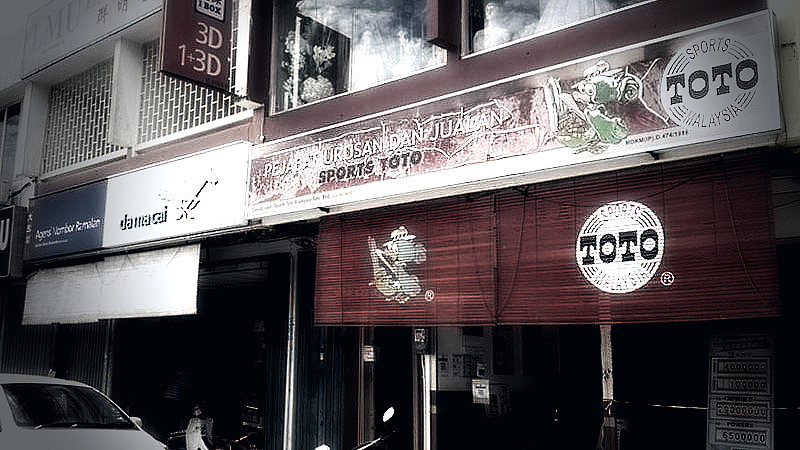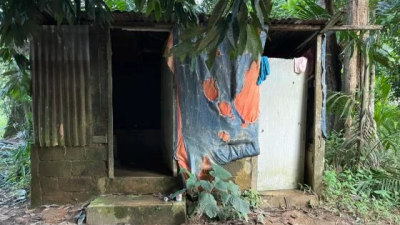The question of non-Muslims buying a lottery ticket at a gaming outlet is not hinged on gambling per se, but the freedom to gamble or not to gamble.
Six state legislative assemblies will be dissolved this month to pave way for state elections.
It is weird that Perlis, which is not going to hold an election any time soon, has decided to shut down all the gaming outlets in the state.
If not because Sin Chew Daily took the lead last week to report this incident, I guess not many would actually bother about this Wednesday’s weekly state exco meeting, and not many would be aware that gaming outlets in the state have received notification from the authorities that their licenses would not be renewed upon expiry.
Perlis menteri besar Mohd Shukri Ramli disclosed to Sin Chew Daily during an exclusive interview that the issue on gaming ban would be brought up in this week’s exco meeting for the very first time.
Our report was confirmed by executive councilor Fakhrul Anwar Ismail in an announcement made after the Wednesday meeting.
The decision to ban betting in Perlis at a time when several other states are gearing up for the upcoming state elections amidst the raging “green wave,” comes as a menace too powerful for the component parties of the unity government to tackle, less so to turn the tide around to their advantage.
Whether the gaming ban message carries a positive or negative connotation depends a lot on the ideological convictions of individuals and how “green” they position themselves to be.
Even as PAS has kept stressing that it respects Malaysians of all races, customs and etnicities, and will uphold and protect their right and freedom to practice their respective ways of living as enshrined in the country’s Constitution, nothing comes more substantial than an edict to ban alcohol and betting in exposing the party’s hypocritical “deep green” nature.
Judging from market reactions, we can almost conclude instantaneously that Toto and Magnum, whose share prices have plummeted to their near 10-year lows, are only good to “sell,” not “hold” and less so “buy.”
As if that’s not enough, even though there are only six gaming outlets operating in Perlis, less than one percent of all of Toto’s and Magnum’s 1,130 outlets nationwide and therefore having only very negligible effects on the two public-listed companies’ overall business, the deeper meaning and impact beyond the numbers far outweigh the direct effects on the employees and customers of these six Perlis gaming outlets, for sure.
Also helmed by PAS, the neighboring state of Kedah already shut down all its gaming outlets from the New Year day this year, following the footsteps of the Islamist party’s two east coast states where gaming ban has been in place for many years. This made Perlis the only PAS state yet to impose an outright gaming ban.
To break the camel’s back, all that is needed is that one last straw gently placed on it. It is no more a question now whether that last straw which is Perlis is going to be placed on the camel’s back, but when. And with the six state elections just around the corner, the Islamist party couldn’t have found a better time than now!

A grave and cruel reality that could ensue is that non-Islamic states like Selangor, Penang and Negeri Sembilan could fall into the hands of PN if the Perlis move has managed to fuel the fighting spirit of the “green wave” elsewhere in the country.
We don’t need an expert to tell us how disastrous the consequences could be to our multicultural communities that cherish our diversity and divergent values, if this were to materialize.
The betting stations of Toto and Magnum in the three states of Selangor, Penang and Negeri Sembilan make up about 35% and 33% respectively of the two companies’ total outlets nationwide, and they are all quite profitable.
An investment bank analyst has asserted that if all these outlets were to close down, the companies’ profits would be halved.
Additionally, Damacai, a privately held betting company which has consistently funded Chinese schools in the country with its profits and has 134 outlets in these three states (41% of total), will not be spared for certain.
If touch wood this becomes a reality, Malaysia will once again find itself in international limelight, including Genting Highlands where part of the land is within the state of Selangor.
Genting’s destiny will have wider reverberations across much bigger issues like the country’s FDI inflow and economic development, among others.
We can’t deny that different people have very different attitudes towards gambling, but we must also admit that a complete gaming ban will definitely have its flip side. For example, underground betting activities are expected to pick up, meaning more social problems such as crime and money-laundering.
Sure enough gambling should not be encouraged but it must be duly regulated. Effective industrial regulation can provide the government the much needed tax revenue which could then be channeled to social welfare, education and public services for the well-being of the rakyat.
In addition, the gaming industry will also make the country more attractive to international tourists who will not only spend in casinos but also hotels, F&B, shopping and other tourist activities, thus boosting the country’s economic development.
There are many moderate leaders among PN’s top guns who resist indiscriminate religious conservatism. These people are well aware of the fallout and as such had not slapped a gaming ban when they were running the federal administration.
On the newly imposed Kedah gaming ban I voiced up at a media dialogue early this year, a PN leader assured us that it was only the menteri besar’s personal agenda and that the PN coalition would keep the issue hands-off at national level.
This Bersatu leader was apparently not very happy with the Kedah decision because gambling is the “home affairs” of the state’s non-Muslim population, and has evolved to become almost an integral part of the culture during Chinese New Year celebrations. He promised to discuss this matter with PAS.
Now that the gaming ban is effectuated in both Kedah and Perlis, as a senior partner in the PN coalition, sure enough Bersatu can advise its ally, who might or might not take the advice in good faith, though.
Those in power must have a broader scope of vision on the issue of gaming ban. At least they must be able to visualize the forthcoming impact conservative measures could have on the state’s economic development.
Perhaps it is not pure coincidence that the country’s three poorest states — Kelantan, Perlis and Kedah — are all controlled by one same party. Terengganu is not much better off, ranked fifth from the bottom, while Kelantan has the rare “privilege” of being constantly ranked at rock bottom for many years!
The question of non-Muslims buying a lottery ticket at a gaming outlet is not hinged on gambling per se, but the freedom to gamble or not to gamble.
The availability of such freedom has a far-fetched implication on a state’s future prospect.
And if we allow this to spread across the whole country, our future is doomed!
ADVERTISEMENT
ADVERTISEMENT








































